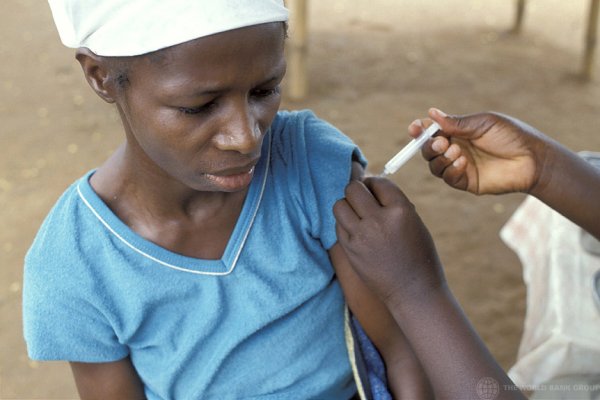Repurposed tests can detect falsified vaccines, study finds
Widely available rapid diagnostic tests (RDTs) manufactured to diagnose common infections can be repurposed to detect substandard and falsified (SF) vaccines, a neglected issue with serious global implications for public health, say researchers in a study published in Vaccine.

The study’s preliminary data suggests that further investigation of RDTs could lead to their being used by international organisations, national medicines regulators and vaccine manufacturers and distributors to screen for falsified (aka counterfeit) vaccines in supply chains, aligned with the WHO’s global ‘Prevent, Detect and Respond’ strategy.
Vaccines are vital and cost-effective interventions to prevent multiple infectious diseases. However, there is increasing recognition of SF vaccines, that threaten the effective roll-out of vaccines. There have been numerous reports of substandard (usually due to degradation for vaccines) and falsified vaccines (eg for rabies, cholera, meningitis, yellow fever, hepatitis B and COVID-19).
“There is an urgent need for widely available, affordable devices to empower inspectors to screen for SF vaccines and medicines in global supply chains,” said study co-Principal Investigator Prof Paul Newton, Head of Medicine Quality Research Group (MQRG).
“This remains a relatively neglected issue with serious global implications for public health,” said Prof Newton.
RDTs are exceedingly simple, quick and cost-effective for near-patient testing of a wide range of infectious diseases. They offer similar benefits in detecting falsified vaccines, but until this study there were no published data on repurposing of RDTs for this purpose.
An interdisciplinary group of researchers at the University of Oxford’s Department of Biochemistry, Kavli Institute for Nanoscience Discovery, Nuffield Department of Medicine (NDM) and Department of Chemistry, the Rutherford Appleton Laboratory, University of East London and Aix-Marseille University have published their results demonstrating the utility of repurposed rapid diagnostic tests (RDTs), manufactured to diagnose common infections, for detecting falsified vaccines.
Led by Prof Nicole Zitzmann at the Department of Biochemistry, University of Oxford and the Kavli Institute, and Prof Newton, the study was carried out by the Vaccine Identity Evaluation (VIE) team.
Dr Tehmina Bharucha of the Zitzmann lab and the VIE team conducted a proof-in-principle study, demonstrating the diagnostic accuracy of four RDTs in detecting seven genuine vaccines and distinguishing them from chemicals used in falsified vaccines. The team are working on expanding this work for diverse other vaccines and trials of this and other techniques in evaluations with colleagues in Nigeria.
Read the full paper: Repurposing rapid diagnostic tests to detect falsified vaccines in supply chains
 fr
fr 

 English
English Português
Português Español
Español Tiếng Việt
Tiếng Việt